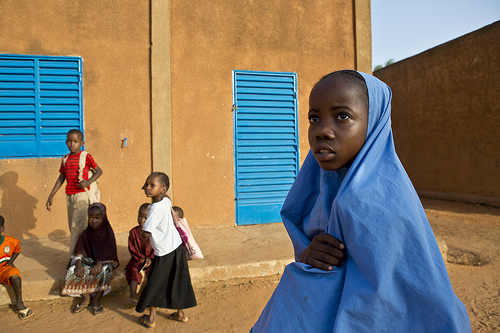 Conflict in northern Mali has destabilized the government and displaced hundreds of thousands of people. According to UNICEF around 400,000 Malian children have faced “severe disruptions” in their education. Now, as the fighting winds down and efforts to rebuild the country begin, organizations have turned their attention toward education.
Conflict in northern Mali has destabilized the government and displaced hundreds of thousands of people. According to UNICEF around 400,000 Malian children have faced “severe disruptions” in their education. Now, as the fighting winds down and efforts to rebuild the country begin, organizations have turned their attention toward education.
The UN Office for the Coordination of Humanitarian Affairs (UNCHR) estimates that the conflict has displaced almost 500,000 people, with 175,000 refugees in camps across Mauritania, Niger, and Burkina Faso. In some camps over half of the refugees are children, and many have been there for over a year.
UNICEF and partnering organizations like the Mauritanian Red Crescent and the UNHCR have been working to set up formal schooling for the refugees. They provide the materials and the teachers, but are limited in the number of children they are able to reach. Although the Malian government is participating, up to this point it has mostly focused its efforts on ending the fighting.
The schooling programs are severely underfunded, as most donors cut off aid to Mali at the beginning of the crisis. Additionally, most of the humanitarian aid Mali receives is being put toward efforts other than education- in 2012 only 0.9% of the humanitarian aid budget was used for education. UNICEF estimates it needs an additional $18 million to educate all of the children in refugee camps.
According to Mohammed El Hadi, a teacher at a school in the Mbera refugee camp in Mauritania, the students in the camps face a difficult learning environment. The temporary school buildings they have can’t hold up in bad weather, and as some school shelters collapse others are becoming overcrowded, with 70-80 pupils per class.
With additional funding, the NGOs operating in the camps plan to build more permanent shelters, set up more schools, and add a job-training program for teenagers and young adults.
The Malian conflict began in early 2012, when Tuareg rebels seized control of the northern part of the country. Following a March 2012 coup, the rebels and their radical Islamic group allies, backed by Al-Qaeda, marched south. In January 2013 the French military stepped in to regain the northern region and hold the peace.
Creative Commons Love: UNHCR/ACNUR on Flickr.com

















